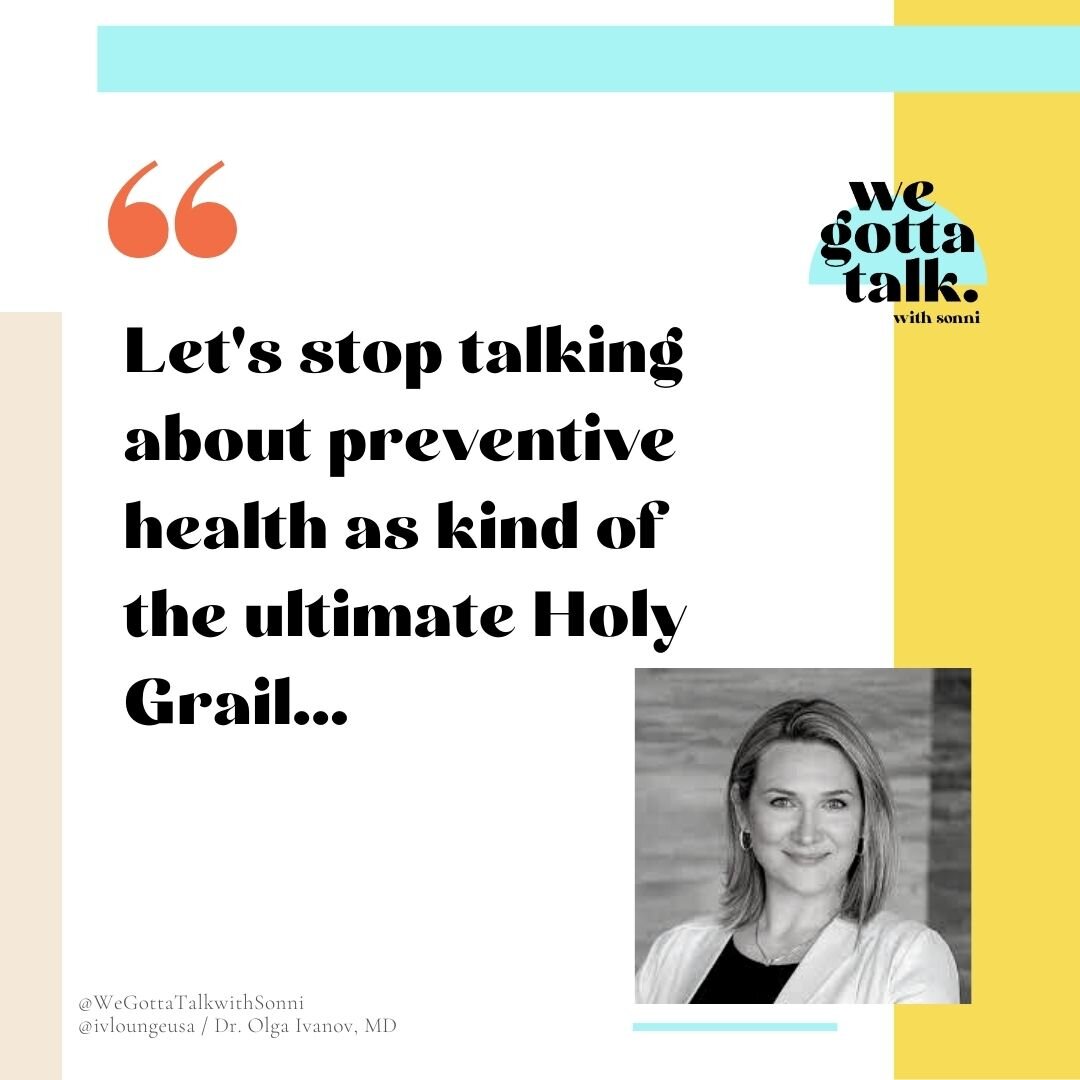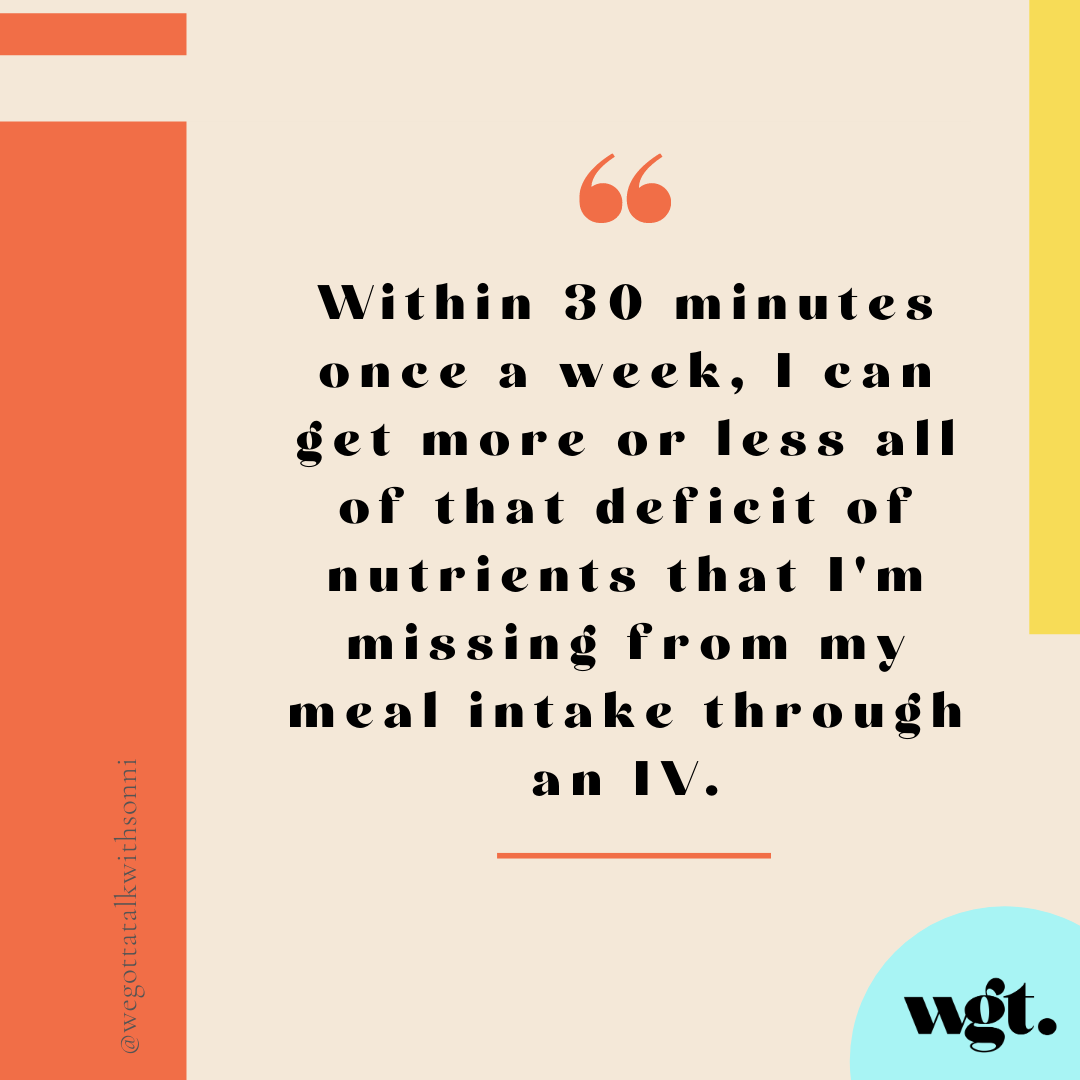A breast cancer surgeon and doctor wants you to get these two tests, now
October 7, 2020

As part of my interview with the amazing Dr. Olga Ivanov on We Gotta Talk last week (check out the whole video interview here, and the podcast here!), we talked proactive health.
Proactive Health Explained
What Is Proactive Health?
Think about preventive health, but taken one step further. While preventive health will encourage you to get screenings and testing in anticipation of certain symptoms and conditions, proactive health—which is being pioneered in part by former breast cancer surgeon Dr. Olga Ivanov—is all about knowing which questions to ask to keep your health in prime condition before symptoms even arrive.
A big part of proactive health, according to Dr. Ivanov, is requesting information about your body from your doctors that can give you information you need to properly supplement and eliminate any potential triggers that are causing unnecessary stress and inflammation in your body.
So of course, during the course of our conversation, I wanted specifics about what tests we need to ask our doctor for.
Let’s dig in!
Micronutrient Test
Dr. Ivanov suggested this test first as a must-do for anyone seeking to be proactive about her health.
This test, when administered by your doctor, will break down how your body is absorbing and processing nutrients. The results will break down where your obvious—and less obvious—nutritional deficiencies lie by looking at the inside of your cells and their overall health.
Food Sensitivity Test
I have to admit, this isn’t one that I would have ever thought to take. Even though I’ve known about food sensitivity tests, I never considered them essential because I don’t experience many symptoms relating to digestion or food sensitivity.
My mind is now changed.
Dr. Ivanov says a food sensitivity test can tell you what foods are triggering an inflammatory response in your body. What’s so bad about inflammation? Chronic inflammation is related to a myriad of serious health issues, including cancer, diabetes, heart disease and more. It would follow that reducing this response in your body can only be a healthy thing.
A Diet Mantra to Live By
So first things first, I’m not using the word “diet” here in the restrictive sense, but rather in the general sense of what types of food are best for the body.
Dr. Ivanov made sure to mention in our interview that, because our food sensitivities and guts are all different, there is rarely a “one size fits all” recommendation when it comes to the best type of diet for optimal health. But what she did say about how to eat best is something that I’ll be repeating to myself on loop:
“Eat [real] food—mostly vegetables.”
Dr. Ivanov said this after our discussion on eating clean. She mentioned a study that showed that even some of the world’s healthiest and most elite athletes, when monitored for a year, were unable to get in all the healthy nutrients we need from food alone.
The lesson? Do what you can with diet and eat as much clean produce as possible, but know that even then, you may need to supplement.

How I Supplement and Why I’ll Be Adding IV Therapy
I’ve been on a doctor-recommended supplementation plan for a while now and will continue, but after hearing Dr. Ivanov say that in many cases she estimates only 25% or less of our oral supplements actually get absorbed, I’m more convinced than ever to give IV therapy a longer try.
I’ve already done IV therapy twice before; and in both instances I felt an immediate boost of energy. Now that I know the long-term benefits, I’m going to be adding this into my preventive health routine.
Check out my experience at the IV Lounge here—Part One and Part Two. (This was not sponsored or paid for in any way; treatment was provided for free in exchange for my honest review.)
If you’d rather listen to the podcast, subscribe here! (Bonus points and air kisses if you leave a rating and review! )
© 2022 WGT Designed by leche studio
PRIVACY & TERMS
CONNECT
NAVIGATE
Home
Blog
Work With Me
More From Us
Want to be the first to get the latest updates and news?
About
Podcast
Contact